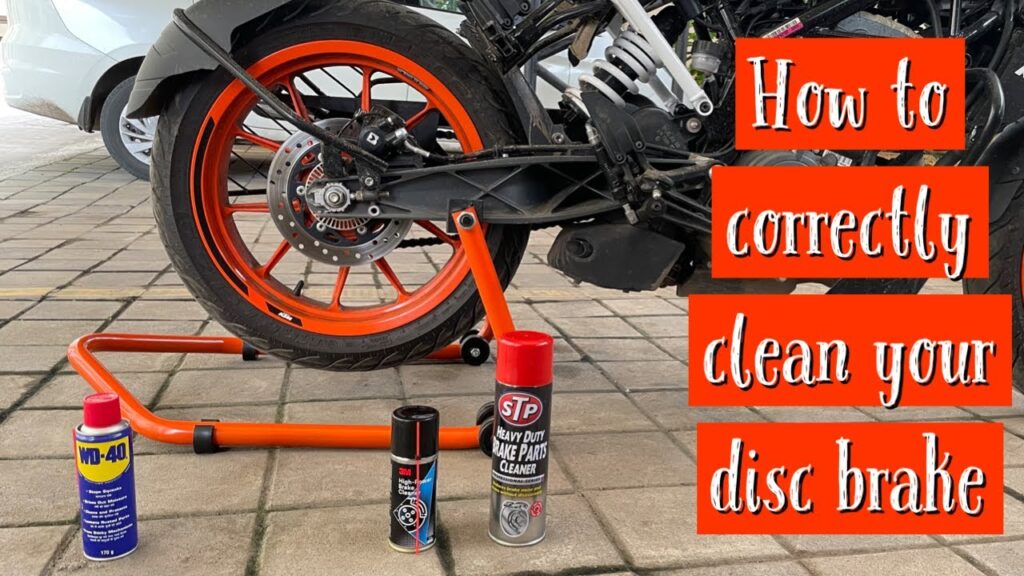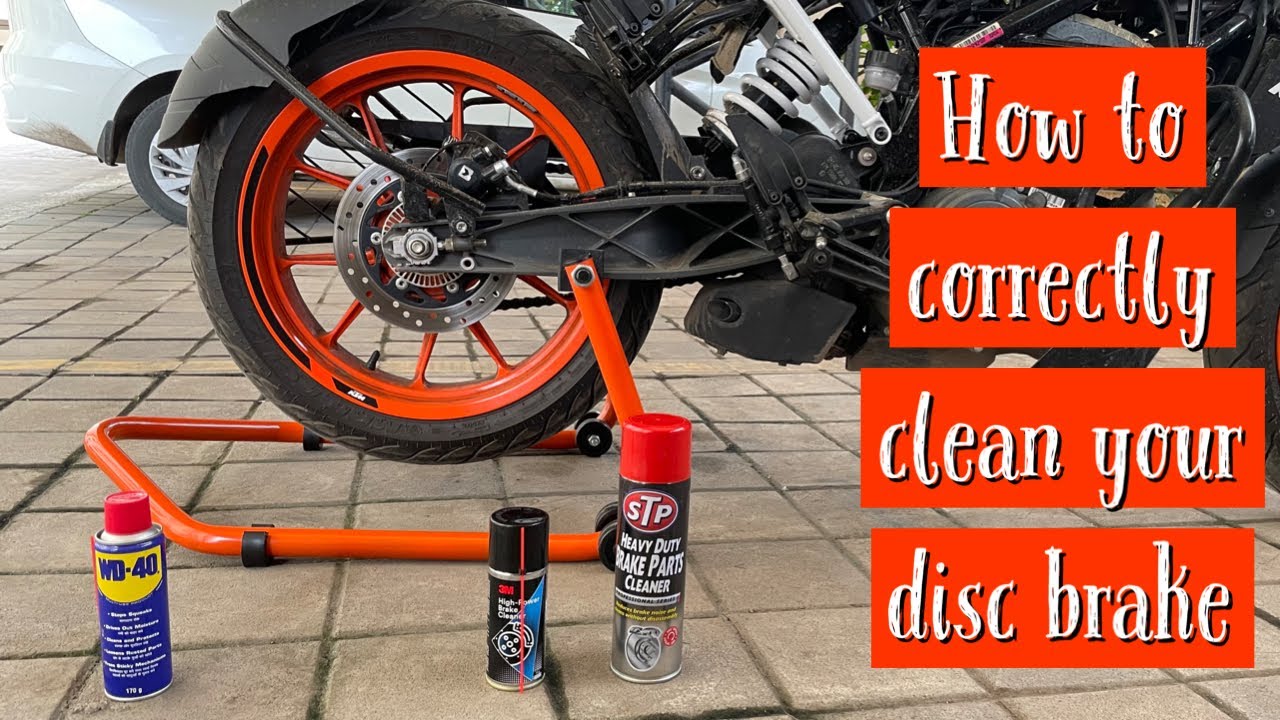
Can I Spray WD40 on Brakes? Understanding the Risks and Alternatives
The question, “Can I spray WD40 on brakes?” is a common one among car owners and DIY mechanics. WD40 is a versatile product known for its lubricating, water-displacing, and rust-inhibiting properties. However, when it comes to your vehicle’s braking system, the answer is a resounding no. Applying WD40 to any part of your brakes can severely compromise their functionality, leading to dangerous situations. This article will delve into why you should never use WD40 on your brakes, explore the potential consequences, and suggest safer alternatives for brake maintenance.
Why You Should Never Spray WD40 on Brakes
Your vehicle’s braking system relies on friction to slow down or stop the wheels. Brake pads press against rotors or drums to create this friction. WD40 is a lubricant, and introducing it into this system drastically reduces the friction needed for effective braking. This reduction in friction can lead to several critical problems:
- Reduced Braking Power: The most immediate and dangerous consequence is a significant decrease in your car’s ability to stop quickly. This can result in longer stopping distances, increasing the risk of accidents.
- Brake Failure: In extreme cases, applying WD40 to brakes can lead to complete brake failure. The lubricant can saturate the brake pads, rendering them useless.
- Contamination of Brake Components: WD40 can contaminate other parts of the braking system, such as the rotors, calipers, and brake lines. Cleaning these components after contamination can be a difficult and time-consuming process.
- Attraction of Dirt and Debris: While WD40 can initially displace water and clean surfaces, it can also attract dirt and debris over time. This buildup can further reduce braking efficiency and cause premature wear of brake components.
Potential Consequences of Using WD40 on Brakes
The consequences of spraying WD40 on brakes can range from minor inconveniences to life-threatening situations. Understanding these potential outcomes is crucial for making informed decisions about brake maintenance.
Compromised Safety
The primary concern is the compromised safety of your vehicle and its occupants. Reduced braking power and the potential for brake failure can lead to accidents, especially in emergency situations. It’s simply not worth the risk to apply WD40 on brakes.
Costly Repairs
Using WD40 on brakes can result in the need for costly repairs. Contaminated brake pads and rotors may need to be replaced, and the entire braking system may require a thorough cleaning. These repairs can quickly add up, making it a much more expensive solution than using the correct products in the first place. Think of it this way: is using WD40 on brakes really worth the potential repair bill?
Voided Warranty
If your vehicle is still under warranty, using unauthorized products like WD40 on brakes can void the warranty. Manufacturers typically specify the types of fluids and lubricants that are safe to use on their vehicles. Deviating from these recommendations can give the manufacturer grounds to deny warranty claims if brake-related issues arise.
Safer Alternatives for Brake Maintenance
Instead of using WD40 on brakes, there are several safer and more effective alternatives for maintaining your vehicle’s braking system. These products are specifically designed for brake components and will not compromise their functionality.
Brake Cleaner
Brake cleaner is a specially formulated solvent designed to remove brake dust, grease, and other contaminants from brake components. It evaporates quickly and leaves no residue, ensuring that the brake pads and rotors maintain their optimal friction. Always use brake cleaner in a well-ventilated area and follow the manufacturer’s instructions carefully. Brake cleaner is a much safer option than using WD40 on brakes.
Brake Lubricant
Brake lubricant is designed to lubricate specific parts of the braking system, such as the caliper pins and the backing plates of the brake pads. This lubricant helps to prevent corrosion, reduce noise, and ensure smooth operation of the brake components. It is important to use a brake lubricant that is specifically designed for this purpose, as other types of lubricants may not be compatible with the materials used in the braking system. Never substitute brake lubricant with WD40 on brakes.
Proper Brake Inspection and Service
Regular brake inspections and service are essential for maintaining the safety and performance of your vehicle’s braking system. A qualified mechanic can inspect the brake pads, rotors, calipers, and brake lines for wear and damage. They can also perform necessary maintenance tasks, such as replacing worn brake pads, resurfacing rotors, and bleeding the brake lines to remove air and moisture. These services are crucial for ensuring that your brakes are functioning properly and safely. Relying on professional service is better than trying to use WD40 on brakes as a shortcut.
Addressing Common Brake Issues Safely
Many car owners encounter common brake issues such as squealing, sticking, or rusting. While it might be tempting to reach for WD40 on brakes to solve these problems, it’s important to understand the underlying causes and address them with appropriate solutions.
Brake Squealing
Brake squealing is often caused by vibrations between the brake pads and rotors. Applying a small amount of brake lubricant to the backing plates of the brake pads can help to dampen these vibrations and reduce the noise. However, it’s crucial to avoid getting any lubricant on the friction surfaces of the brake pads or rotors. Again, never use WD40 on brakes for this purpose.
Sticking Brakes
Sticking brakes can be caused by corrosion or debris buildup in the caliper pins or other moving parts of the braking system. Cleaning and lubricating these components with a brake lubricant can help to restore their smooth operation. If the sticking persists, it may be necessary to replace the affected parts. Resist the urge to use WD40 on brakes; use the correct lubricant instead.
Rust on Brakes
Surface rust on brake rotors is common, especially in humid environments. This rust typically wears off after a few braking applications. However, excessive rust can indicate a more serious problem, such as a seized caliper or damaged rotor. In these cases, it’s important to have the brakes inspected and serviced by a qualified mechanic. WD40 on brakes won’t solve the underlying issue of excessive rust.
Debunking Myths About WD40 and Brakes
Several myths surround the use of WD40 on brakes. It’s essential to debunk these misconceptions to prevent potentially dangerous practices.
Myth: WD40 Can Remove Brake Dust
While WD40 can dissolve some types of grease and grime, it’s not an effective brake dust remover. Brake dust is a fine, abrasive material that requires a specialized cleaner to remove effectively. Using WD40 on brakes to remove brake dust can actually worsen the problem by attracting more dirt and debris.
Myth: WD40 Can Stop Brake Squealing
Although WD40 might temporarily silence brake squealing, it’s not a long-term solution. As mentioned earlier, brake squealing is often caused by vibrations, and WD40’s lubricating properties can mask the noise for a short time. However, it doesn’t address the underlying cause of the vibrations and can compromise braking performance. The temporary silence isn’t worth the risk of using WD40 on brakes.
Myth: WD40 is a Universal Lubricant for All Car Parts
WD40 is a versatile product, but it’s not a universal lubricant for all car parts. Different components require specific types of lubricants designed for their unique operating conditions. Using the wrong lubricant can damage the component and compromise its performance. Never assume that WD40 on brakes is a suitable substitute for specialized brake lubricants.
Conclusion: Protect Your Brakes and Your Safety
In conclusion, while WD40 has many uses, it should never be sprayed on your vehicle’s brakes. Doing so can significantly reduce braking power, lead to brake failure, and compromise your safety. Instead, use specialized brake cleaners and lubricants designed for brake components. Regular brake inspections and service are also essential for maintaining the safety and performance of your braking system. Always prioritize your safety and the proper maintenance of your vehicle. Remember, the question isn’t just “Can I spray WD40 on brakes?” but rather, “Should I risk my safety and the integrity of my vehicle by doing so?” The answer is a clear and definitive no. It’s better to be safe than sorry when it comes to your brakes, so avoid using WD40 on brakes at all costs. Use the right products, get regular inspections, and keep your brakes in top condition. If you are still contemplating using WD40 on brakes, consider the risks and potential costs, and opt for the safer, more effective alternatives. Your life and the lives of others on the road depend on it. Properly maintaining your vehicle, and avoiding using WD40 on brakes, is a responsible and necessary action for every driver. So, next time you’re tempted to use WD40 on brakes, remember this article and make the right choice.

